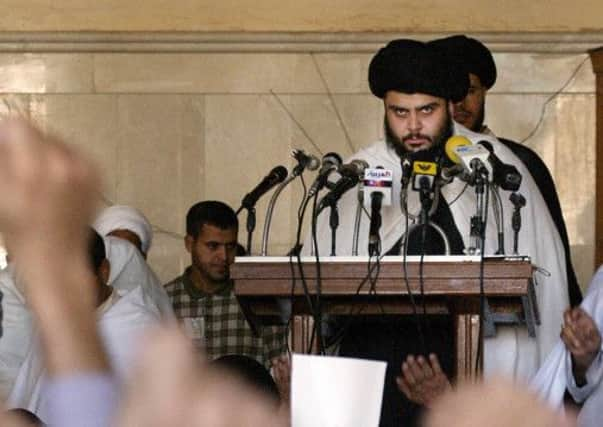Shiite cleric Muqtada al-Sadr leaves Iraq politics


Mr Sadr has made such announcements before, but yesterday’s declaration comes only two months before national parliamentary elections. Sadrists hold 40 out of 325 seats in the legislature, making them the largest single Shiite bloc, and hold six cabinet seats.
Mr Sadr said his move was to “preserve the reputation of the Sadr [family]… and to put an end to all the wrongdoings that were conducted, or could be conducted, under their title”.
Advertisement
Hide AdAdvertisement
Hide AdHe said: “I announce here that I will not interfere in politics. There is no political entity that represents me anymore nor any position in parliament and government. Whoever acts against this will be subjected to legal and religious action.”
He also ordered all Sadr political offices to be closed down.
The move appeared to be unexpected. Sadr officials could not be reached for contact. The movement announced a news conference, only to cancel it.
Mr Sadr came to prominence in the 2003 US-led invasion that toppled Saddam Hussein, whose regime killed his father and grandfather.
He established his Mahdi Army militia that fought the Americans and is blamed by many Iraqis for much of the sectarian violence that raged in Iraq in 2006 and 2007.
Iraq’s main al-Qaeda breakaway group claimed responsibility yesterday for an attack on a military barracks that killed 15 troops last week.
The troops were assigned to protect an oil pipeline that sends Iraqi crude oil to international markets, as well as to guard a nearby highway outside the northern city of Mosul.
Eight of the soldiers were beheaded in the attack on Monday while the rest were killed by gunfire.
Advertisement
Hide AdAdvertisement
Hide AdAlong with the statement, posted on a website commonly used by jihadists, the Islamic State of Iraq and the Levant put up an image of the beheading of one of the soldiers, as well as captured arms and vehicles. The statement listed other attacks against security forces in and around Mosul.
Violence continued yesterday. Gunmen attacked a police checkpoint outside the northern city of Kirkuk, killing five policemen, said a spokesman.